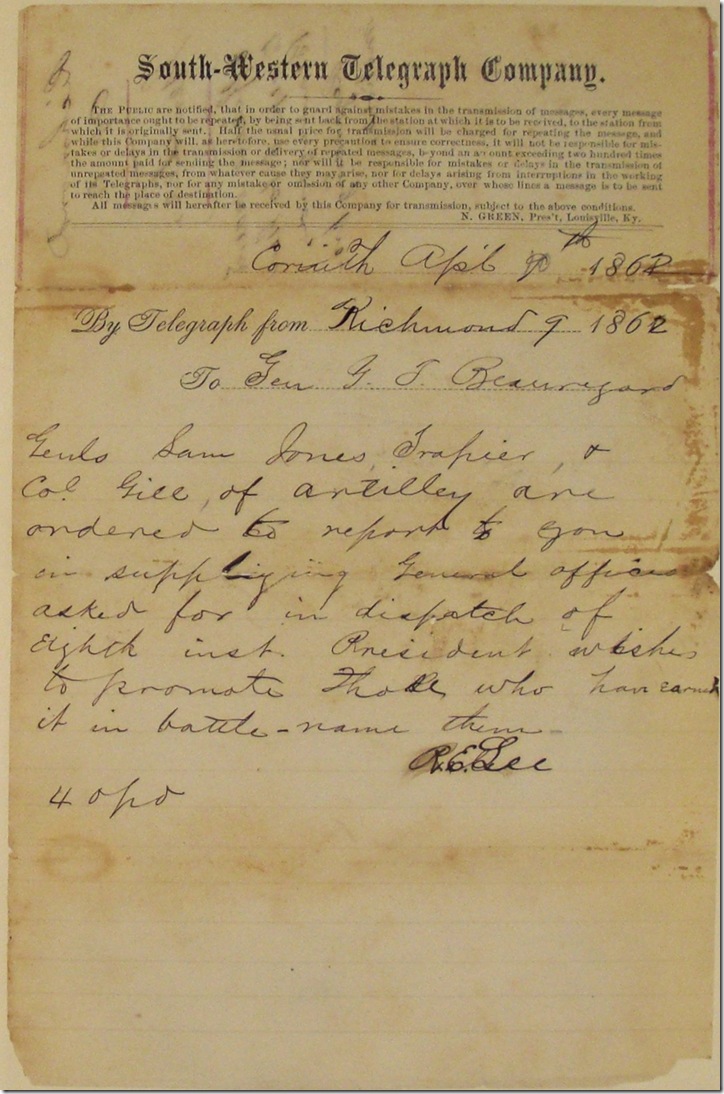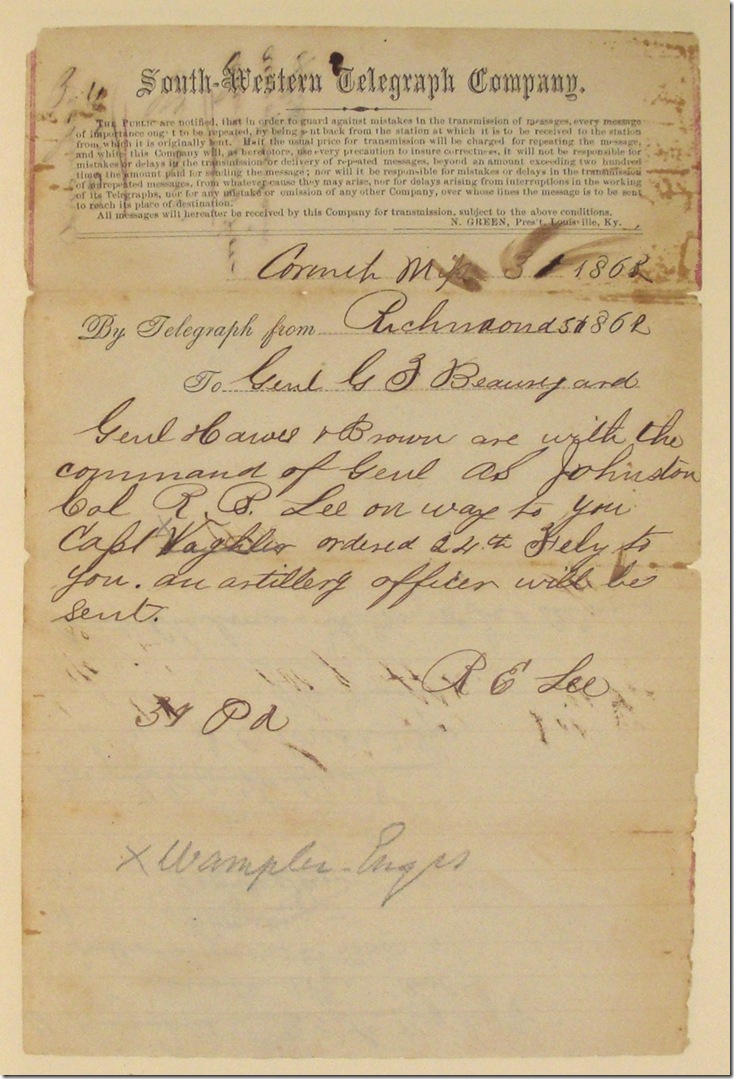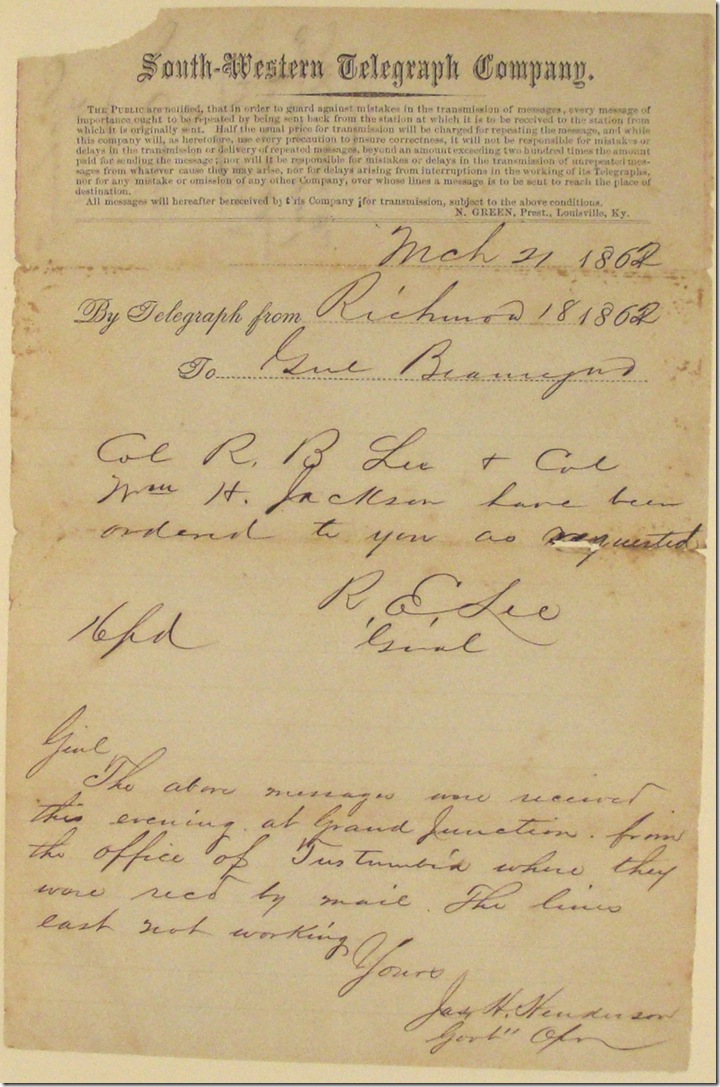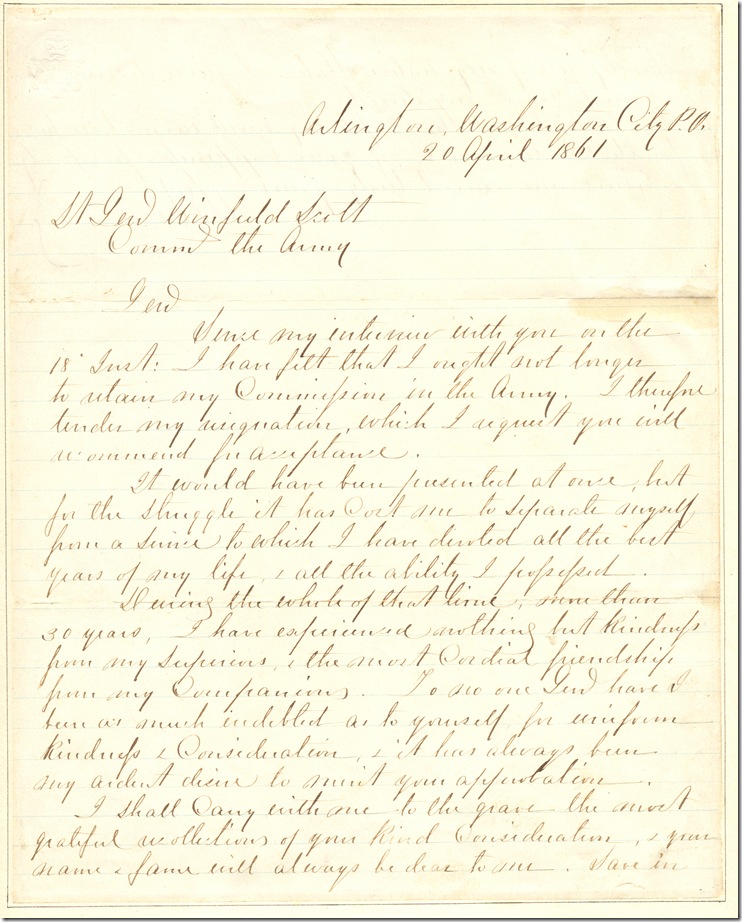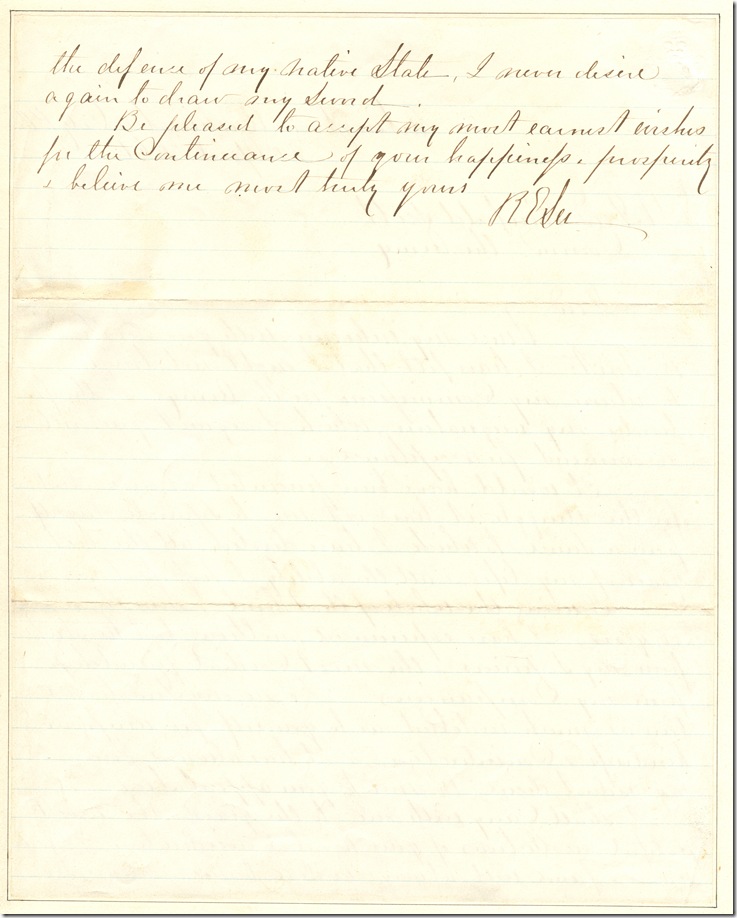Pierre Gustave Toutant Beauregard was a Louisiana-born general of the Confederate States Army. He had graduated second in his class from West Point in 1838 and was an admirer of Napoleon. He achieved fame early in the Civil War for commanding the Fort Sumter bombardment and as the victor of the first battle of Manassas. He later served in the Western Theater (including Shiloh and Corinth), Charleston, and the defense of Richmond, but his career was hampered by friction with Jefferson Davis and other generals.
This telegram is from The Telegraphic History of the Civil War; a compiled album of telegrams to Beauregard from Davis, Lee, Johnston and others.
Transcript:
Corinth April 9th [“10” written over “9th” in pencil] 1862
By Telegraph from Richmond 9 1862
To Gen G. T. Beauregard
Genls Sam Jones, Trapier, & Col. Gill, of artillery are ordered to report to you in supplying general officers asked for in dispatch of eighth inst. President wishes to promote those who have earned it in battle—name them.
R. E. Lee
40 pd
Citation:Robert E. Lee (1807-1870), telegram to G.T. Beauregard. Richmond, 9 April 1862. In The telegraphic history of the Civil War, 1861-1865. AMs 434/16
